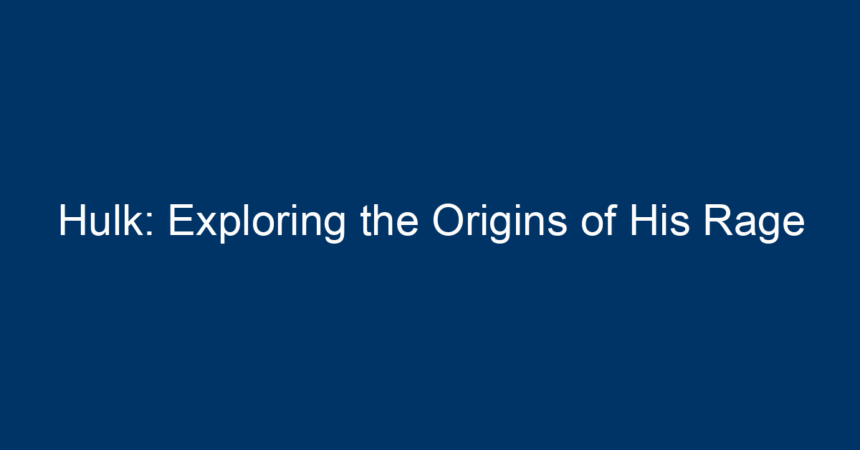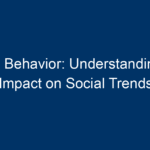The Hulk, a renowned character from the Marvel Universe, has captivated audiences for decades. His iconic green visage, coupled with the phrase "HULK SMASH!", symbolizes not just brute strength but deeper themes of anger, conflict, and human nature. In this article, we will explore the origins of the Hulk’s rage, delving into the character’s creation, psychological complexities, and cultural impact.
The Birth of the Hulk
The Creation of an Icon
The Hulk first appeared in The Incredible Hulk #1, published by Marvel Comics in May 1962. Created by the legendary duo of writer Stan Lee and artist Jack Kirby, the character was influenced by Mary Shelley’s Frankenstein and the Jekyll-and-Hyde tale. From the get-go, the Hulk represented the dualities of human nature—strength and vulnerability, rage and intellect.
Bruce Banner’s Transformation
At the center of the Hulk’s saga is Dr. Bruce Banner, a brilliant physicist who suffers a gamma radiation accident that transforms him into the Hulk whenever he experiences extreme anger. This transformation serves as a metaphor for uncontrolled rage that resides within everyone. It’s this internal struggle that makes the Hulk one of the most relatable characters in the superhero genre.
The Psychological Dimensions of the Hulk
The Anger Within
The Hulk’s rage is not just a surface-level characteristic; it’s rooted in Bruce Banner’s psyche. The character embodies a struggle with inner demons, representing unresolved trauma and pent-up emotions. Analyzing the psychological aspects of Hulk reveals a deep connection to issues like anxiety and depression.
Unresolved Trauma
Bruce Banner’s backstory reveals a childhood filled with abuse, primarily at the hands of his father, Brian Banner. This trauma sets the stage for Hulk’s explosive rage. The combination of a traumatic upbringing and the stress of his scientific experiments creates a volatile mix. As a result, the Hulk’s emergence serves as an existential crisis—an outward manifestation of Bruce’s inner turmoil.
The Hulk as a Defense Mechanism
The Hulk can be interpreted as a form of defense mechanism for Bruce Banner, shielding him from emotional pain. Whenever Bruce is pushed to his limits, the Hulk emerges, providing an escape and displaying raw power. This highlights the conflict within Bruce: the desire for acceptance versus the fear of rejection.
The Evolution of the Hulk
Changing Narratives Over the Years
Since his inception, the Hulk has evolved significantly, reflecting societal changes and cultural expectations. Earlier portrayals emphasized sheer brute strength, while more recent interpretations explore nuanced emotions and complex relationships.
The Hulk in Movies and Media
The passage of time has seen the Hulk transition from comic books to television and film. This evolution has expanded his mythos, with notable portrayals by actors like Eric Bana, Edward Norton, and Mark Ruffalo.
The 2003 Hulk Film
The 2003 movie directed by Ang Lee delves into Bruce Banner’s traumatic past, providing viewers with insight into the psychological origins of the Hulk’s rage. The film’s tone is darker and more introspective, drawing parallels with themes of alienation and loneliness.
The Marvel Cinematic Universe
In the Marvel Cinematic Universe (MCU), the Hulk is portrayed with a mix of humor and pathos, illustrating his struggles within a broader ensemble. Here, the character has become a fan favorite, showcasing both his power and vulnerability—particularly through plots like "Thor: Ragnarok" and "Avengers: Endgame".
The Cultural Impact of the Hulk
Symbol of Anger and Rage
The Hulk has grown into a cultural symbol of rage and frustration. His iconic status is not limited to comic books; he has found a place in discussions about anger management and mental health. The character resonates with individuals who confront their inner rage, making the Hulk a figure of empowerment.
Merchandise and Popularity
The global impact of the Hulk has also been showcased through merchandise, toys, and video games. His popularity transcends age and gender, appealing to anyone familiar with the struggles of human emotion.
The Hulk as a Role Model
Interestingly, Hulk is often depicted as a reluctant hero. This aligns with the idea that individuals can embrace their flaws and channel anger into something constructive. This narrative encourages fans to acknowledge their emotions and find healthier outlets for them, promoting conversations about mental health and emotional well-being.
The Hulk and Emotional Management
Understanding Anger
Exploring the Hulk’s rage opens avenues for discussions on emotional intelligence. The character’s journey highlights the importance of recognizing and managing anger in our lives. Here are a few actionable insights inspired by the Hulk:
-
Recognize What Triggers Your Rage: Understanding what causes your anger is the first step in managing it. Just as Bruce Banner learns to identify his triggers, you can benefit from reflecting on your emotional responses.
-
Find Healthy Outlets: Whether it’s exercise, art, or conversation, finding outlets for your emotions can prevent explosive situations. Channeling energy positively, much like the Hulk does when he fights alongside the Avengers, can mitigate the feeling of being overwhelmed.
-
Seek Support: Bruce Banner’s journey emphasizes the importance of community. Building a support system can provide comfort during challenging times and help in managing emotions effectively.
- Practice Mindfulness: Techniques such as meditation and deep breathing can help in managing anger and reducing emotional outbursts. Engaging in mindfulness can lead to a deeper understanding of your feelings, much like Bruce’s journey towards self-awareness.
Conclusion
The Hulk is more than just a superhero; he is a reflection of human struggles with anger, trauma, and identity. By exploring the origins of Hulk’s rage, we can gain valuable insights into our emotional lives.
The Hulk teaches us that acknowledging our feelings, understanding their roots, and finding constructive ways to express them are vital for personal growth. In a world that often sidelines discussions about mental health, the Hulk serves as a complex symbol of resilience, inviting us to confront our inner battles, embrace acceptance, and channel our emotions toward positive outcomes.
As you navigate your path, remember: just like Bruce Banner, your journey is a series of transformations. Embrace them, grow from them, and never underestimate the power of your emotions. After all, even the Hulk has his moments of reflection—and so can you.




